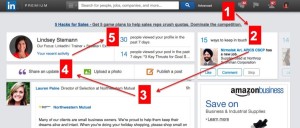Right now, the stock market is sideways and it’s hard to know exactly what to do. Pull out and keep everything under a mattress? Stay the course and pray for better days?
Fast Company spoke with people from four different generations (Gen Z, millennial, Gen X, and baby boomer) to understand their investing strategies. Of course, one voice doesn’t represent a generation, but it can show how a particular life era—juxtaposed with different economic climates—can shape someone’s journey.
Despite their age and circumstantial differences, common trends emerged among the investors we spoke with: Hold steady, don’t worry too much about changes, and invest as much as you can.
The Beginner
“Alex,” 18
Location: Georgia
Occupation: High school student
Net worth: Under $25,000
My story: I’m still a high school student, and am also dual-enrolling in a few college courses. I have had two jobs that I’ve recently quit to focus on school. I worked at two different Chick-fil-A locations. If I were to sell every single thing I have to my name, it would amount to less than $25,000. The largest two factors are my whole bank account and my car.
I started investing last year, since that’s when I turned 18 and could buy stocks and whatnot legally. I bought my first stock hardly two days after my 18th. Not a whole stock though, about $5 worth of Procter & Gamble. Also, just this week I created a Roth IRA with Robinhood. I have $75 in there. It’s not a lot of money, but how many people can say they have invested for their retirement at 18? Not a lot, so I’d like to think I’m ahead of the game a little.
In the short-term, I want to graduate college without debt, and if I’m lucky, have some money in the bank to pay for life afterwards until I have a job lined up. In the long term, I want to not have to worry about retirement, and make sure I’m financially secure throughout my life.
Biggest lesson I’ve learned: Don’t be scared when you see your portfolio drop. The market has its ups and downs. When I first put some money into investing, it stayed still for a few weeks, then dropped like 10% or more. I’d lost a decent amount of money (for being poor in the first place) and was scared that I’d just thrown it all away. I got pretty stressed about it until my father gave me this piece of advice: “Don’t look at it.” And he was right. It was nothing to worry about, and a few days ago my account [gained] since then and I’m profiting. So really, you don’t have to check your portfolio every hour. You’ll be fine for the most part.
Advice to new investors: I’m not sure if I’m qualified to give advice, but the best I can do is to tell you to start now. It doesn’t matter how young or old, doesn’t matter the hour of the day, or how much money you have. Start investing for your future now, be ahead of the game.
The Dreamer
Nwanneka Onuekwusi, 35
Location: Washington, D.C.
Occupation: Management consultant
Net Worth: $900,000
My story: I went from a net worth of about $30,000 to $920,000. For most of my twenties, I didn’t think about money. I took pay cuts to work at jobs that I found interesting. Then I went to business school and a professor made us do an exercise where we listed what we want to do and what scares you. We had to write down ways to counteract our fears. I realized I was scared of an emergency like a family member getting sick. My net worth was about $20,000-$30,000. I wanted to save up a nest egg, so long-term I can do what I want to do. After business school, I didn’t want to earn less than $150,000.
I was an economics major undergrad; I always thought about investing, but I started in 2017 after business school, when I got a job that paid about $150,000. I read The Intelligent Investor and The Richest Man in Babylon. They were so helpful and underpinned my strategy.
I had a simple strategy of maxing out my retirement contributions and trying to save $5,000-$6,000 a month to invest in ETFs. I also invested my year-end bonus. This amounted to about $70,000-$120,000 between 2017 and 2021. I layered on more as I did more research and my income went up. I did REITs (real estate investment trusts), and angel investing with some classmates, which you can only do as an accredited investor (when your income is over $200,000, if you are single). I also invest in art through Masterwork, which buys famous art pieces and creates shares in [them], so the general public can invest.

Originally my goal was to make $1 million by the time I was 40, but I’m already at the $920,000 mark. I’m passionate about investing, especially as a woman of color. A lot of friends and family ask me for advice. I actually recently quit my job and am taking time off—I hope to write about personal finance at a blog I’ve created called Simplified Wallet.
Biggest lesson I’ve learned: Keep it simple! When I first started, I had so many different ETFs. Now I just have three. Automate deposits, set calendar reminders, and make it difficult to withdraw the money you’re investing.
Advice to new investors: Start from wherever you are; it’s okay if it’s just $100. A lot of places are trying to make it accessible. I used Fidelity: They have ETFs and mutual funds. You can’t go wrong with an ETF. You are betting on whole U.S. economy. Oh, and avoid high fees. At the very least, get a high-yield savings account. A lot of good banks have 3% interest.
The Zen Investor
“James,” 55
Location: Washington, D.C.
Industry: Advertising
Net worth: $2 million
My story: I was the first person in my family to graduate from college. I saw firsthand the impact on people’s lives when you don’t have resources, when you can’t work. My grandparents were the pension era and worked in the same company for 40 years. My grandmother lived another 30 years on the pension widow benefits. My parents started in a pension-based job and in the 1980s the rules changed to 401(k)s, and they were left to figure it out; it didn’t end well. They didn’t have the foundational knowledge to plan their own retirement. I realized that no one is going to take care of me and I needed to have enough resources, so I wouldn’t have to rely on other people.
I started investing when I got out of college—there was a matching program where you put in 5% of your salary. I had the benefit of success very early in my investing career. It was double digit growth. I started to get these statements where I’d saved $20,000 and it was worth $30,000 the next year. All I had to do was save and then it grew. I became really interested in investing and personal finance. I wonder if it would be different if I was 25 now and the market was down 25%? Would that change my approach and philosophy?
Today, I make about $225,000 a year from my job and I have a few side gigs: I sell rare books, rent my house on Airbnb, and help people sell things when they are downsizing. It makes about $10,000. That’s how I pay for travel, or if I need a little extra like when a family member had a medical emergency. I currently set aside 40% of my salary for investing. Half of my investments are in a 401(k) and SEP-IRA, 25% are in real estate, and 25% in brokerage. I meet with my financial adviser twice a year.
I usually check the markets once a day. If it’s up, I know I’m up. I use S&P as a benchmark. Once a month I’ll go into my spreadsheet and update numbers and get a sense of what’s happening big picture.
I like my job. I plan to stay put for now, but I might move into a preretirement phase where I take my skills to a local nonprofit that can’t pay as much and is more aligned with my personal values and desire to generate meaningful impact. I consider it a glide path to retirement where I just need to bring in enough money to pay my existing lifestyle because my savings will be set; I’m about five years away.
Biggest lesson I’ve learned: I think of investing as a bar of soap. The more you touch it, the smaller it gets. I keep socking money into low-cost mutual funds and it grows. Warren Buffett said the stock market is a device to transfer money from the impatient to the patient.
Advice to others: You can do it if you are patient and smart. Live below your means, be frugal, and invest over time. Don’t focus on whether it’s up or down. Just trust the process. Oh, and read The Millionaire Next Door.
The Founder
Bruce Epstein, 59
Location: Florida
Occupation: Founder of a healthcare communications company
Net worth: “Less than Warren Buffett”
My story: We had no money. None. My father was a shoe salesman. I wanted to make sure I had money. I knew what it was like not to have any; it was important to me. I started investing in high school. I bought a stock and sold it three days later. It didn’t move. I couldn’t figure out why.
I went to Rutgers for pharmacy school. After that, I went to work as a sales representative for a pharmaceutical company. And at that time, I knew I wanted to get more education, so I got my MBA at NYU at night, while still working my job. I got promoted to market research from sales. In 2005, I started my own company.
After I got my first full-time job, I started investing about 15% of my salary. My goal was to beat the S&P 500, which I now know was unrealistic. I started making good money in 2001. I had a few hundred thousand in my 401(k), some money in the bank, and owned my own house, but didn’t feel secure. I started making really good money in 2006, which changed my perspective on my family’s future, and then the business took off in 2010.
I started investing half of my posttax income. My goal became wanting to retire, but I realized I actually love working to help myself and others around me. I’ve taught at Rutgers since 2005. I stopped last year, but now teach at six different pharmacy schools. I want pharmacy PhDs to know they have options beyond retail or hospital pharmacy.
Now my goal is to create a family real estate legacy and a charitable legacy focused on educating the underprivileged. Because I’m comfortable, I’ve changed my strategy into growth mixed with wealth preservation. Right now, my portfolio is 60% stocks, 20% real estate, and 20% munis. Real estate has relatively low returns at first, but if you can afford to put up the money, it becomes a real cash cow in 10 or 15 years, and the tax advantages are great, especially for transferring to your family once you’ve died. But I’ve learned to manage it myself—it saves a huge amount of time and energy. I got my real estate license last week.
I don’t feel comfortable sharing my net worth. I’ve learned all I need to do is let people know I’m comfortable, so if I bring them a nice bottle of wine, they don’t feel like they have to reciprocate.
Biggest lesson I’ve learned: Don’t try to beat the S&P 500. There are a lot of people who do this full-time and they were better than I was. I tried to time the market. I’d pull money out at the wrong times. I lost half my gains. Over 10-15 years, I gained 4%, which is better than a CD but about half as well as I could have done.
Advice to others: If you are working for someone, put your money in Fidelity or Vanguard. Let it sit there and don’t look at it, or look at it once a year. The only thing you should change is the amount you put in it over time: You should get between 6-8%. Once you are ahead of the trend of what you need to retire comfortably, consider investing in rental real estate close to where you live, work, or plan to retire, too.
(16)








